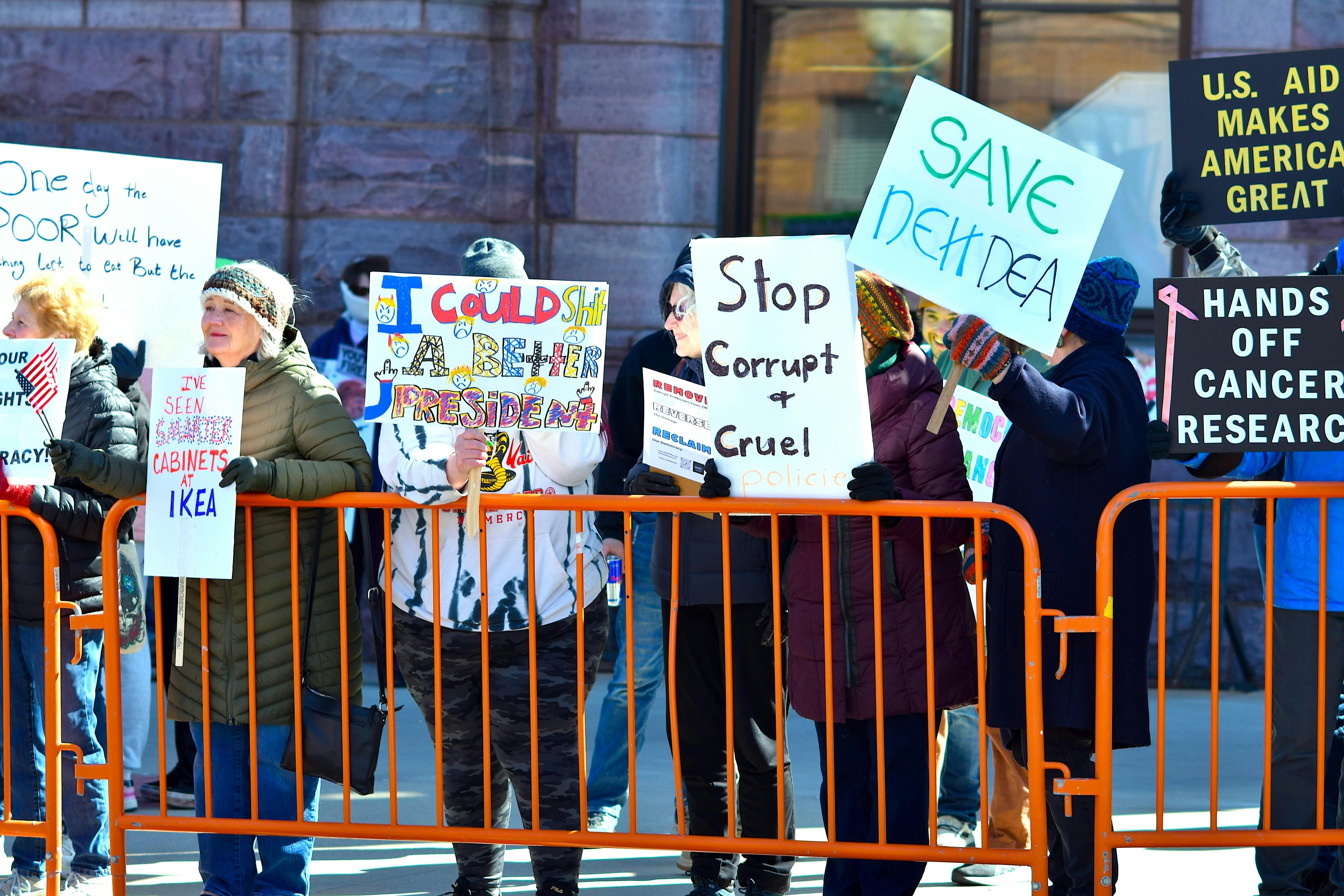Europe's Response to Trump's Tariff War: De-escalation, Not Retaliation
EU Should Demonstrate Intelligent Counteractions Against Trump's Policies
By Jan Ganger Facebook Twitter WhatsApp Email Print Copy Link
In response to Donald Trump's latest tariff volley aiming at the EU, trade ministers across Europe are seeking a wise and non-aggressive countermove. Let's hope the Old World can muster some sanity.
Donald Trump's destructive tariffs have sparked a global trade war, exploiting fear and inflaming tensions in a self-serving display of protectionism. The EU is yet another target of Trump's relentless barrage, with the president making baseless accusations about EU's motives, claiming it was formed to "rip off" the U.S. Now, the EU's top trade officials are facing a formidable dilemma. They need to find a way to de-escalate this absurd trade spat without further stoking the flames.
Yes, Trump works best when met with force. However, the EU must avoid returning fire with tariffs. First and foremost, such a move would make an already volatile situation even more chaotic. Furthermore, inflicting harm upon itself is the last thing the EU should do. Markets are already reeling from Trump's protectionist policies, with corporates and consumers suffering under the crushing weight of increased prices. The EU doesn't need to add its own tariffs to the mess.
Economic Outlook: Markets on a Rollercoaster, Global Recession Brewing The question remains: Can Trump be made to see reason and abandon his path of economic ruin? Bear in mind, Trump sparked a worldwide trade quarrel with no apparent cause, targeting even staunch allies of the U.S. After billions vanished from U.S. stock markets in a matter of days, Trump dismissed it as a necessary dose of medicine. He now insists the tariffs will remain until the U.S. trade deficit vanishes. Trump's unflinching adherence to his tariff dogma puts the EU in a precarious position. Imposing countermeasures could only serve to harden Trump's stance.
Let's not forget what tariffs can do: witness the chaos unfolding across the Atlantic. Markets are crashing, people's savings are withering away, and a global recession looms. U.S. tariffs – no more than additional taxes levied on imported goods – are causing prices to skyrocket at home, leaving people with less disposable income. Inflation is picking up speed, the economy is shrinking, and recession lurks just over the horizon.
And it's this grave prospect that might force Trump to reconsider his destructive policies. Or as Ted Cruz, Trump's loyal ally and influential senator from Texas, put it: "If this recession hits the USA, there will be blood on the floor for the Republicans in the midterm elections next year."
Unfortunately, even that dire forecast might not deter Trump from prolonging the trade war. Nevertheless, Trump's irresponsible tariffs have left him wounded. The EU would be ill-advised to inflict further self-inflicted damage.
Reference: ntv.de
- Tariffs
- Donald Trump
- Trade Conflicts
- Trade Relations
Additional Insights:
To effectively de-escalate the trade conflict with the United States under Trump's tariff policies, the European Union (EU) can employ a multifaceted strategy that balances diplomacy, economic leverage, and strategic investment.
1. Negotiate Diplomatically: Initiating high-level talks with the U.S. to address underlying issues, offering tariff reductions on selected goods, and employing the Anti-Coercion Instrument (ACI) to act as a bargaining chip.
2. Build Internal Economic Resilience: Improve market integration, encourage domestic investments, and advance technological sovereignty to reduce reliance on U.S. markets and technologies.
3. Maintain Flexible Countermeasures: Implement strategically-targeted retaliatory measures and monitor U.S. responses to global trade dynamics, particularly concerning China.
4. Explore New Global Trade Opportunities: Strengthen ties with Asia, Africa, and Latin America, and secure technological partners to offset U.S. tariff impacts over the long term.
- Despite Donald Trump's assures that his escalating tariffs will not lead to a crashing economy, economists within the EU remain concerned, as a prolonged tariff war could negatively impact employment policies across multiple communities in Europe.
- In light of Trump's tariff-driven trade conflicts, EU trade officials are contemplating the use of tariffs as a means of de-escalation, while simultaneously ensuring the stability of existing employment policies.
- To mitigate the potential adverse effects of Trump's tariffs on Europe, the European Commission has been drafting community and employment policies aimed at providing various safety nets for industries and workers faced with increasing tariffs, ultimately preventing further employment policy escalations.








